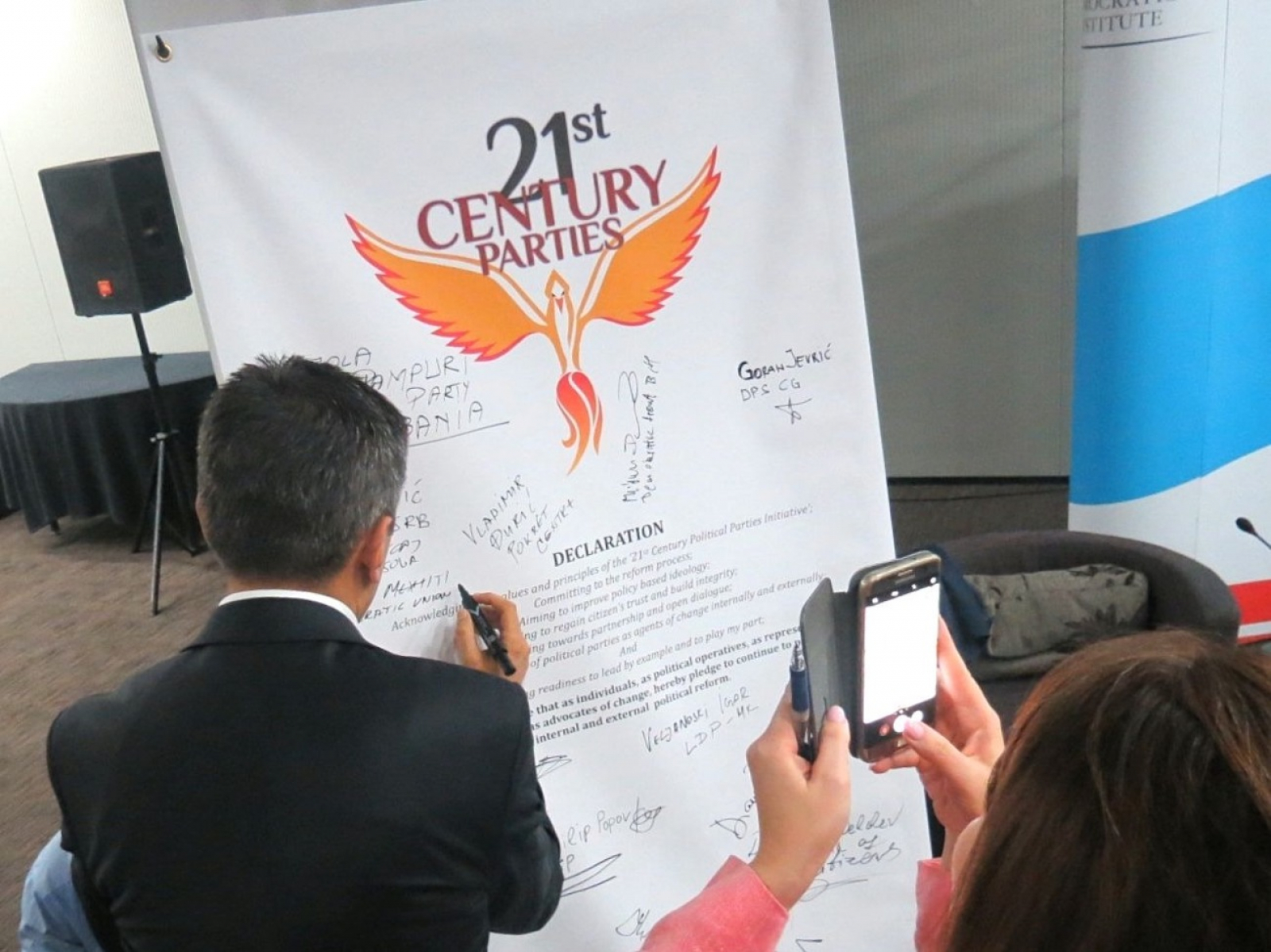
SHARE
Political parties play an essential role in a democracy, for which they must exercise good leadership, conduct regular outreach to their constituents, and demonstrate that government is delivering on citizen concerns. When parties cannot fulfill this role, democracy suffers.
As countries in the Balkan region of Europe work to stabilize their democratic systems and become members of the European Union (EU), all eyes have turned to political parties to drive sweeping political reforms. Citizens have voiced their frustration with parties in public demonstrations in Macedonia, Romania and Serbia to protest government and electoral corruption. Activists across the region accuse political parties of not being transparent about funding sources, not responding to citizen’s concerns like health care and education, and not acknowledging women and youth who want to be more involved in politics. Many politicians hear these complaints and seek to respond, but oftentimes they lack the tools and know-how to do so. Sometimes, the right reforms to address these issues must be created from scratch.
In June 2018, representatives from more than 30 parties in the Balkans–including Albania, Bosnia and Herzegovina, Bulgaria, Croatia, Kosovo, Macedonia, Montenegro, Romania and Serbia–came together in Macedonia to design their own solutions to these challenges, with help from NDI and several political party experts. Over two days, party members from all levels of leadership collaborated to develop a set of best practices and reforms they can use within their parties to be more transparent about their work, more responsive to citizen concerns, and more inclusive of women and youth.
These political parties from the Balkans are the latest participants in NDI’s 21st Century Party Initiative, a global program that brings parties together to examine the problems they have in common and create solutions they can use together to better respond to the needs of the people they represent. In Mavrovo, party representatives explored a wide variety of reforms, including:
- strengthening local party branches to work more directly with citizens;
- developing more transparent internal elections that encourage women and youth to become party leaders; and
- curating long-term voter outreach strategies to engage citizens throughout the political process, not just during elections
Looking ahead, party representatives discussed how to maximize both the effectiveness and the impact of their reforms, both within their parties and in the communities they represent. Some of the proposed strategies included collecting input and feedback from as many people in the party as possible and using social media platforms to share progress on reforms with citizens in real time. As participants continue working together to build better parties, they in turn help to build stronger, more democratic societies, in the Balkans and around the world.


